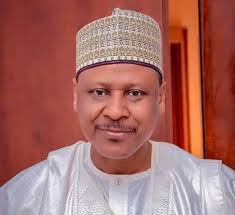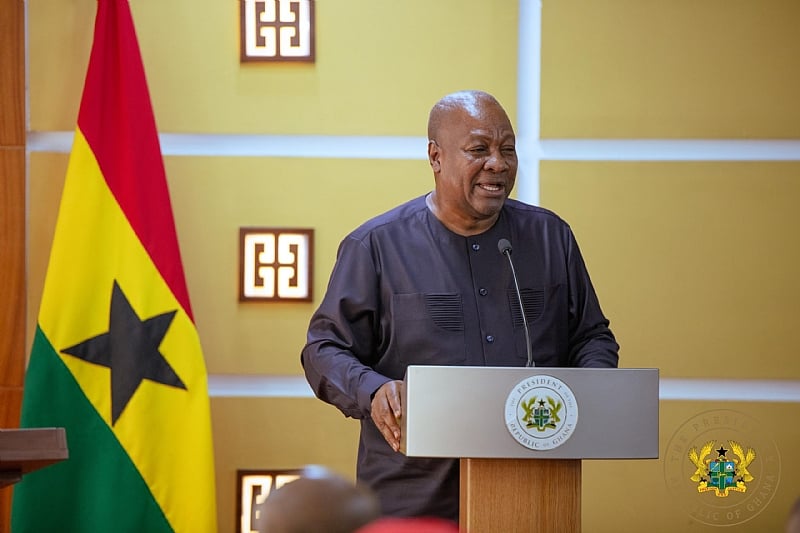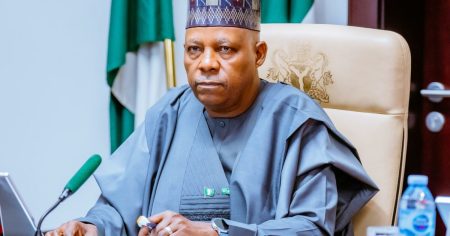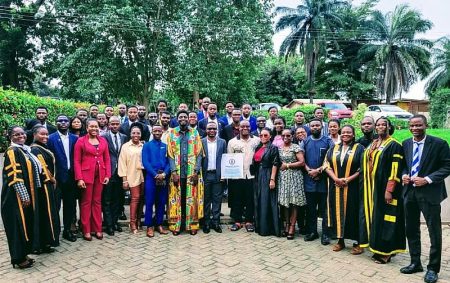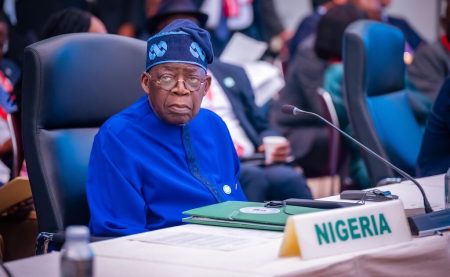The inauguration of the National Lands Commission’s 26-member Governing Board by President John Dramani Mahama marks a pivotal moment in Ghana’s pursuit of a modernized and efficient land administration system. Tasked with the monumental responsibility of overhauling the nation’s land governance framework, the board, chaired by Dr. Wordsworth Odame Larbi, is entrusted with integrating land institutions, promoting responsible management of public lands, and advocating for sustainable land use practices throughout the country. President Mahama’s address underscored the significance of this undertaking, emphasizing the need for a decisive break from the past and a commitment to safeguarding land resources for future generations.
The President’s charge to the board members was clear and compelling: to act boldly, impartially, and in the best interests of the nation. He urged them to tackle the systemic issues that have plagued Ghana’s land sector, including bottlenecks, rent-seeking behaviors, and disregard for constitutional principles. The President’s vision is for a transformed land sector, one characterized by transparency, accountability, and efficient service delivery. He stressed the need for the Commission’s leadership to demonstrate a tangible shift in approach, ensuring that their actions reflect a genuine commitment to reform and public trust.
President Mahama framed the inauguration as not just the establishment of a new board, but as a national commitment to rectify the historical mismanagement of land resources. He emphasized the link between land and every facet of Ghana’s development, highlighting its crucial role in agriculture, housing, industrialization, transportation, environmental protection, and cultural identity. Moreover, he acknowledged the vital role of effective land administration in attracting investment, securing livelihoods, and maintaining peace and stability. His words painted a clear picture of the far-reaching implications of a well-functioning land sector for Ghana’s overall progress.
However, the President also frankly addressed the deep-seated challenges facing the land administration system. He acknowledged the widespread issues of confusion, conflict, and expropriation that have long plagued the sector. He cited instances of mistrust, multiple land sales, protracted litigation, extortion, and even violence, particularly within the Greater Accra region. Furthermore, he highlighted the illegal alienation of forest reserves and the conversion of public lands for private gain, emphasizing the urgent need for reform.
President Mahama’s assessment of the situation was stark, describing the land administration system as the area of national life most in need of a complete overhaul. He lamented the years of mismanagement, political interference, and institutional decay that have eroded public trust in the Lands Commission, citing independent anti-corruption surveys that ranked the Commission among the least trusted state agencies. This candid acknowledgment of the systemic issues underscores the magnitude of the task facing the new board and reinforces the urgency of their mandate.
The inauguration of the new board, therefore, symbolizes a critical turning point in Ghana’s approach to land governance. The board, armed with a clear mandate and the full backing of the Presidency, is expected to usher in a new era of transparency, accountability, and efficiency in land administration. Their success will be measured not only by policy reforms but also by tangible improvements in the daily experiences of Ghanaians interacting with the land sector. Dr. Wordsworth Odame Larbi, speaking on behalf of the board, expressed gratitude for the opportunity to serve and pledged their commitment to integrity and dedication in fulfilling this crucial national responsibility. The nation now watches with anticipation as this new chapter in Ghana’s land governance unfolds.



